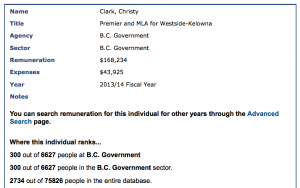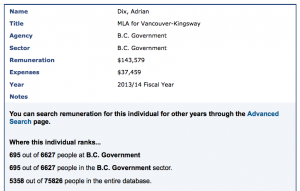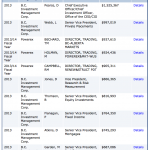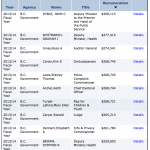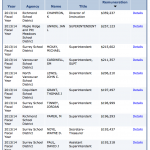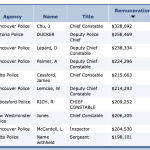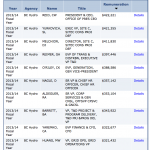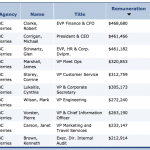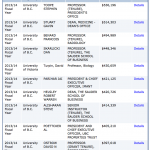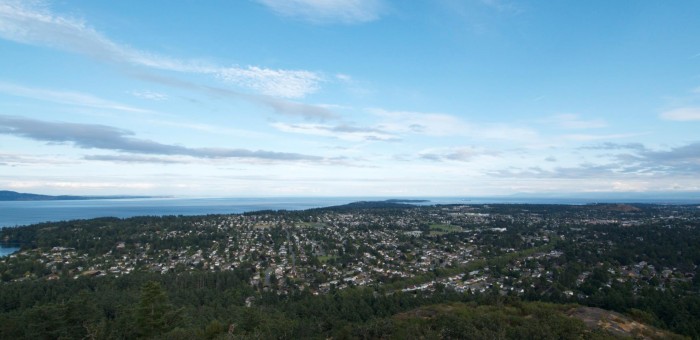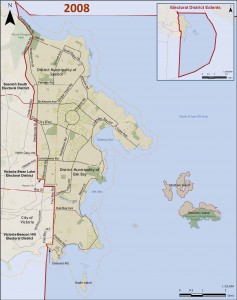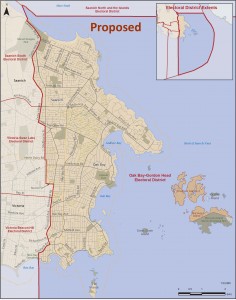Democratic Reform
Muzzling the BC Greens — Standing up for Our Democracy
Once more the BC NDP blocked me from participating in a debate. Today we were to debate the following resolution:
15 Mr. Heyman to move —
Be it resolved that this House recognize that Power BC is a modern strategy to build the economy, create jobs and meet B.C.’s energy needs while reducing our impact on climate change.
While I obviously had a few things I could say to this motion, I want to emphasize the highlight of the morning was Vicki Huntington, MLA for Delta South, standing up on a point of order regarding the rights of independent members to participate in these debates and not be shut down by the opposition.
Below is her must-watch video.
Video of MLA Huntington’s Point of Order
Prior to this Minister of Agriculture called for Private Member’s Motion 14 to be debated.
As noted by the Deputy Speaker, “unanimous consent is required to proceed with Motion 14 without disturbing the priorities of the motions preceding it on the order paper.” Unanimous consent was given.
But here’s the problem, Motion 14 stated this:
“Be it resolved that this House recognize the accomplishments and success of B.C.’s Skills for Jobs Blueprint.”
The motion carried and then George Heyman rose and spoke to Motion 15 (which hadn’t actually been called).
After George delivered his address, the Deputy Speaker stated:
Deputy Speaker: Hon. Members, we have to clarify the motion. It was moved as Motion 14. It’s supposed to be Motion 15. House Leader, could you please move Motion 15?
Hon. N. Letnick: I’m happy to move Motion 15.
Deputy Speaker: Hon. Members, unanimous consent of the House is required to proceed with Motion 15 without disturbing the priorities of the motions preceding it on the order paper. Is consent granted?
I did not grant leave which meant that unanimous support was not received. After a short recess, the Deputy Speaker noted this:
Deputy Speaker: We have received unanimous consent for Motion 14, so we are going to proceed with Motion 14. The member for Vancouver-Fairview already has spoken on that.
And so the debate on Motion 14 resumed.
As noted at the top of this post and in Vicki Huntington’s video, yet again the BC NDP did not want to grant me speaking time. I had contacted the opposition house leader on Friday requesting a position in the speaking order. On Saturday evening I received an email saying this wasn’t in the cards.
While normally I would not have fought back, in this case, I felt compelled to do so. I had tried once before to enter a Monday morning debate on the Kinder Morgan pipeline and was blocked by the NDP on that too. But this latest one came right on the heels of me being shut out in Premier’s estimates.
For those interested, the BC NDP’s PowerBC plan is hardly a modern strategy to build the economy, create jobs and meet B.C’s energy needs while reducing our impact on climate change. It is 449 words long and is supported by a 420 word backgrounder. Combined, that’s the length of an opinion piece on a newspaper editorial page. It reads more like a sequence of political talking points rather than a comprehensive plan.
Don’t get me wrong, the BC Liberals have no jobs plan to transition us to a low carbon future either. They are still doubling down on their reckless desperate venture in search of an LNG investment. It’s because of their myopic view to hit an LNG home run that the Canadian Wind Energy Association recently packed up and left British Columbia. We should be using our existing dams and bringing intermittent sources of power together with these dams to actually stablize the base demand.
It’s because of this BC Liberal myopic view that a $1 billion US investment walked from British Columbia — walked from Vancouver Island. There was to be a partnership between five First Nations, TimberWest and EDP Renewables to build wind capacity on Vancouver Island in close proximity to demand for electricity thereby reducing substantive transmission loss.
I agree wholeheartedly in the need to transition to a low carbon economy and have spent many years working towards this end. If we want to rapidly transition to a low carbon furture we only have to look at what is happening in Ontario. Yet in BC we appear to be more interested in debating NDP sound bites and BC Liberal rhetoric.
Where’s the leadership? Where’s the vision?
We should be discussing a fundamental change to the mandate of BC Hydro. BC Hydro should no longer be the builder of new power capacity. Rather, it should be the broker of power deals, transmitter of electricity, and leveller of power load through improving British Columbia power storage capacity. Let industry risk their capital, not taxpayer capital, and let the market respond to demands of cheap power. And we should be talking about the importance of government regulatory oversight, something I will do in a private member’s bill that I will introduce tomorrow.
We should be discussing the widespread electrification of our vehicular sector, including government leadership therein, expanding charging infrastructure and tweaking building codes. The potential here for the clean energy sector is profound.
We should be discussing the introduction of smart grid networks which would assist in load-levelling and high voltage point-to-point DC transmission lines.
And we should be debating exciting new opportunities for innovation and leadership in cleantech renewable energy research and development. One such exampled is the proposed Applied Engineering School in Squamish.
Finally, midway through the debate on Motion 14 I noted that a number of MLAs continued to read their prepared scripts on Motion 15. As such, I also rose on a Point of Order asking the Chair to consider urging the house to debate the motion before us. The video of that follows.
Video of My Point of Order
Introducing a Bill to Lower the Voting Age to 16 in British Columbia
Today in the legislature I introduced Bill M229 — Election Amendment Act, 2016. If enacted, Bill M229 would lower the voter age in British Columbia from 18 to 16.
Those who have been following this site will know that last month, I initiated a conversation on whether or not we should reduce the voting age to 16. The response on social media was wonderful and we received many emails on the topic.
It turns out that this conversation is not only happening now in BC. Prince Edward Island will be holding a referendum in the fall on electoral reform. The eligibility to vote will be extended to youth aged 16 and 17 in this referendum.
Below please find reproductions of both the text and video of the introduction of my bill. In addition, I reproduce the accompanying press release.
Text of Introduction
A. Weaver: I move that a bill intituled Election Amendment Act, 2016, of which notice has been given in my name, be introduced and read a first time now.
Motion approved.
A. Weaver: It gives me great pleasure to introduce the Election Amendment Act, 2016, which, if enacted, would lower the voter age in British Columbia to 16. B.C.’s voting age was not always 18. The voting age dropped from 21 to 19 in 1952 and then again to 18 in 1992. In 1970, Canada’s Elections Act was amended to drop the voting age federally from 21 to 18.
There’s ample evidence to suggest that the earlier in life a voter casts their first ballot, the more likely they are to develop voting as a habit throughout their life. It’s also a common misconception that 16-year-olds are not as informed and engaged in political issues as older voters. The available research, however, suggests otherwise. These young B.C. citizens are also old enough to drive, drop out of school, get married, pay taxes and sign up for the military. They are taxed without representation.
Each and every year B.C. students are required to take social studies 11 or civic studies 11 or B.C. First Nations studies 12 to fulfil their social studies graduation requirement. Politics and government is a key unit in the social studies curriculum, taken when students are typically 16. It’s an ideal time to engage students on the history and importance of voting.
Today’s decision-makers don’t have to live with the long-term consequences of the decisions they make. Those who do are either not allowed to or are not participating in our democratic institutions. We can do something about the former by reducing the voter age to 16. After all, the youth of today are the leaders of tomorrow. They should have a say in the direction we are heading, as they will inherit what we leave behind.
Austria, Argentina, Brazil, Germany and parts of the U.K., to name but a few jurisdictions, have extended voting rights to 16-year-olds. Scotland experimented by lowering the voting age in their independence referendum. They viewed it as being so successful that they subsequently permanently dropped the voting age to 16 in all future Scottish Parliament and local government elections. It’s time that British Columbia did the same.
I move that the bill be placed on the orders of the day for second reading at the next sitting of the House after today.
Bill M229, Election Amendment Act, 2016, introduced, read a first time and ordered to be placed on orders of the day for second reading at the next sitting of the House after today.
Video of Introduction
Media Release
Media Release: May 10, 2016
Andrew Weaver – Good evidence for changing voting age to 16
Embargoed Until May 11, 1:30pm
Victoria B.C. – Andrew Weaver, Leader of the B.C. Green Party and MLA for Oak Bay-Gordon Head today tabled legislation to lower the voting age to 16 in British Columbia.
“There is a lot of evidence that shows that if we engage our youth earlier in the political process they are more likely to develop voting as a habit for the rest of their life,” says Weaver. “The decisions we make today as legislators will have a profound impact on the lives of our youth, I can’t think of a good reason why they shouldn’t have a stake in those decisions.”
The voting age was not always 18 in British Columbia. British Columbia dropped the voting age in 1952 from 21 to 19, but it wasn’t until 1992 that we made the subsequent change to lower the age to 18. The Election Amendment Act, 2016, if passed, would change the voting age to 16.
“Austria, Argentina, Brazil, Germany, and parts of the UK to name but a few jurisdictions, have extended voting rights to 16-year-olds”, notes Weaver. Scotland experimented by lowering the voting age in their independence referendum. They viewed it as being so successful that they subsequently permanently dropped the voting age to 16 in all future Scottish Parliament and local government elections.
It’s time that British Columbia did the same.”
“There is a general misconception that 16 and 17-year-olds are too young to make informed decisions or that they will just vote the way their parents tell them to. Research indicates that this is not the case,” argues Weaver. “It appears there is actually a trickle-up effect in civic participation. When youth engage in civics, conversations around the dinner table tend to focus on politics and local issues, which results in a positive impact on voter turnout for the whole family.”
“We allow our 16-year-olds to drive, pay taxes, drop out of school, get married, sign up for the military and work unrestricted hours. Why are we not allowing them to vote?” asks Weaver.
-30-
Media Contact
Mat Wright – Press Secretary Andrew Weaver MLA
1 250 216 3382
mat.wright@leg.bc.ca
On corporate and union donations, and party leader stipends
Introduction
The subject as to whether or not corporate and union donations to political parties should be allowed in British Columbia has been a matter of debate for quite some time. It resurfaced in the headlines over the last few days.
On April 25th the Dogwood Initiative released polling results showing that “86% of British Columbians would support a ban on corporate and union donations before the next election“.
Two days later Gary Mason wrote a story in the Globe and Mail stating:
“The Globe and Mail has learned that Ms. Clark is given between $30,000 and $50,000 a year from the BC Liberal Party for work she does for it throughout the year, including attending fundraising events. “
in the same piece, the Leader of the Official Opposition is quote as saying he’s received reimbursement for a “couple of suits” totaling about $5000 since becoming Leader in 2014.
In a second piece, published later that day after the BC NDP raised the issue in Question period, Gary Mason piled on the evidence as to why he believes party stipends to premiers shouldn’t be allowed. He noted that BC is one of only two provinces in Canada where a provincial premier gets a stipend from the political party (Saskatchewan being the other). And he suggested that since one of the duties of a provincial party leader is to fundraise, a perception could be left that there is a potential conflict.
The Vancouver Sun also picked up the story as did the Tyee a day later. Both these articles included quotes from a letter that MLA David Eby submitted to the conflict or interest commissioner.
Union and Corporate Donations in BC Politics
The BC Green Party, the BC NDP and Independent Member Vicki Huntington (Delta South) have long called for a ban on union and corporations in BC politics. As I’ve noted in numerous speeches in the legislature, unions don’t vote; corporations don’t vote; only people vote. BC is the wild west in terms of its lax rules for political donations. Any person, union or corporation anywhere in the world can donate any amount of money they want to any party any time they want! It leaves one wondering whose interests are being represented.
Let’s take a quick look at some data from the recent financial reporting to Elections BC.
 The BC NDP 2015 Financial Report notes that the BC Government & Service Employees Union donated $92,679.42 to the BC NDP. The United Steelworks Union donated $66,325 to the BC NDP during this period.
The BC NDP 2015 Financial Report notes that the BC Government & Service Employees Union donated $92,679.42 to the BC NDP. The United Steelworks Union donated $66,325 to the BC NDP during this period.
The BC Liberal 2015 Financial Report notes that The Independent Contractors and Businesses Association of BC donated $47,000 to the BC Liberals. KGHM Ajax Mining Inc. donated $29,000, and the New Car Dealers Association of BC also donated $62,225 to the BC Liberals.
The issue of union and corporate donations raises other potentially troubling concerns. A corporation is governed by a board that ultimately serves at the will of the corporation’s shareholders. As such, donations made by corporations are being done so whether or not a shareholder approves of such donations. In essence, shareholders are having their money used to support a political party even if they don’t support that political party. The same is true for union donations. Union members have dues taken from their paycheques to fund the operations of their unions. There may be members of a union who support a party other than the party that the union that represents them is donating to. In both cases, a chosen few individuals are making the decision as to which political party their shareholders/members will support financially.
The Case of Mount Polley
From January 1, 2012 until May 13, 2013 (the date of the last provincial election), the United Steelworkers Union and several of its Locals donated a total of $636,484.34 to the BC NDP. During the same time, Imperial Metals Ltd donated a total of $24,110 to the BC Liberals. Mount Polley Mining Corporation also donated $45,720 to the BC Liberals.
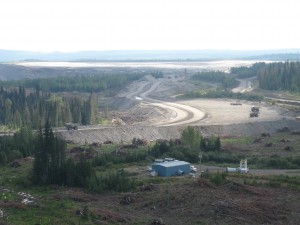 After the tailings pond breach at the Mount Polley mine site, there were a number of newspaper stories pointing out that Imperial Metals, its controlling shareholder, and Mount Polley were all major donors to the BC Liberal Party (see for example a Vancouver Observer article). Imperial Metals was a very minor donor to the BC NDP as well. But as I indicated above, the BC NDP also received substantial donations from the United Steelworkers Union, the union that represents workers at the Mount Polley mine. In fact, Stephen Hunt, USW District 3 (Western Canada) Director, specifically called for USW members to support the BC NDP in the May 2013 election.
After the tailings pond breach at the Mount Polley mine site, there were a number of newspaper stories pointing out that Imperial Metals, its controlling shareholder, and Mount Polley were all major donors to the BC Liberal Party (see for example a Vancouver Observer article). Imperial Metals was a very minor donor to the BC NDP as well. But as I indicated above, the BC NDP also received substantial donations from the United Steelworkers Union, the union that represents workers at the Mount Polley mine. In fact, Stephen Hunt, USW District 3 (Western Canada) Director, specifically called for USW members to support the BC NDP in the May 2013 election.
The purpose of me highlighting the Mount Polley situation is to detail a very real example of why we need to take big union and big corporate money out of BC politics as we have done federally. Government is elected by the people to serve the people of British Columbia. In the case of the Mount Polley incident, the government and the official opposition had to make some very difficult decisions. What, if any, penalties should be implemented? When should the mine be reopened? How should it be monitored? While I am confident that both the government and the official opposition put the best interests of people first and foremost in this case, there will always be those who will question any resulting decision because of the perception that arises when union and corporate money is donated to political parties.
Public Sector Salaries in BC
The Vancouver Sun regularly publishes public sector salaries so its relatively straightforward to track what public sector employers are earning. Below I reproduce the most recently available entries from the 2013/2014 fiscal year for both the Premier (Christy Clark) as well as the Leader of the Official Opposition at the time (Adrian Dix). As you can see from the link images below, Christy Clark’s salary ranked 300th out of 6,627 people within the B.C. Government category; overall she was the 2734th out of 75,826 listed in the database. Adrian Dix’s salary ranked 695th out of 6,627 people with in the B.C. Government category; overall he was 5,358th out of 75,826 listed in the database.
2013/2014 salary for Premier (left) and leader of the opposition (right).
John Horgan took over as leader of the BC NDP in 2014. Publicly available data has yet to make it onto the Vancouver Sun site since Mr. Horgan took office. Nevertheless, the BC Legislature is transparent with respect to MLA salaries.
As of April 1, 2015, an MLA in British Columbia earns $102,878.00. This is the salary I earned as an MLA during the 2015/16 fiscal year. The Premier gets a 90% additional salary increase from this base amount and so was paid $195,468.20 during that time. Her Ministers, the Speaker as well as the leader of the official opposition (John Horgan) receive a 50% additional salary. As such, these elected officials all received $154,317 during the 2015/16 fiscal year.
Despite the fact that I am the leader of the BC Green Party, I do not receive an additional salary from the BC legislature. This is because in order for the BC Green Party to have official party status, we would need four elected members in the legislature. This didn’t stop the New Brunswick and Prince Edward Island legislatures from granting official party status to the New Brunswick and Prince Edward Island Green parties despite that fact that they too had only one MLA elected. Had the BC government seen it fit to grant the BC Greens official party status, I would have a 25% additional salary (for an overall $128,597.50).
A natural question then is who are these other 300 people in the BC government and 2,733 people in BC’s public sector who earn more than the premier? Once more, it’s relatively easy to find that our from the Vancouver Sun’s database. Below I reproduce screenshots of the top 10 salaries in nine specific categories.
Entire Public Sector BC Government Local Government
School Districts Health Authorities Municipal Police
BC Hydro BC Ferries UBC
What should become abundantly apparent is that public sector salaries appear to be out of control in certain sectors. That there are 2,733 people in BC’s public service that earn more than the premier of our province is mind boggling to me. In my view, British Columbia needs to take a very serious and hard look at executive compensation in our public service sector.
The Ethics Receiving a Stipend to Serve as Party Leader
As noted earlier, the topic of union and corporate political donations resurfaced in the headlines last week in concert with public discussion about the appropriateness of political parties giving their leader a stipend for serving in that capacity. The premier has argued that she does two jobs: one as the premier; one as leader of the political party. I have some sympathy for this argument.
While I know that the official opposition made hay over the fact that the premier received a $50,000 stipend for being leader of the BC Liberals, I would argue that it’s somewhat rich for them to try and claim the moral high ground. Leader, John Horgan, admitted to receiving about $5000 in suits from the BC NDP. I have checked the last three years (2013, 2014 and 2015) of public disclosures and do not see any disclosure of this as a remuneration or gift. The same disclosures for the premier identify she received a “Leader’s allowance” in each of these years. Perhaps there is some exemption that I am unaware of or the suits were given in 2016. Either way, I get the sense that it’s a bit like the so-called pot calling the kettle black.
This idiom also applies to the fact that the BC NDP has been calling out the BC Liberals for selling exclusive access to the premier via $10,000 a plate private dinners. Ironically, as Vaughn Palmer points out, when the NDP made such statements Horgan was off to Toronto for an exclusive $5,000 per seat fundraising breakfast. In each case, the names of the attendees were confidential and it’s not as if either the premier or leader of the official opposition have any plans of ceasing these exclusive fundraising activities.
David Eby, MLA for Vancouver Point Grey, submitted a letter to the Conflict of Interest Commissioner on April 27. While I don’t want to prejudge the outcome of Mr. Eby’s complaint, I feel it is important for me to comment on its content. First, the fact that the letter was made public and given out during a press event on the steps of the Office of the Conflict of Interest Commissioner undermines the process itself. I find this guilty until proven innocent public approach to seeking a ruling very troubling. In addition, I am somewhat surprised by the wording of allegations contained in Mr. Eby’s letter. To be frank, I think Mr. Eby has gone too far and I believe his choice of language is most unfortunate and unbecoming of someone of his stature.
Summary
Since becoming the Leader of the BC Green Party in December 2015, I have neither received a stipend nor have I received any suits. I also do not receive the additional salary as leader of a 3rd party in the BC Legislature. Present rules allow for parties to pay their leaders stipends. I have no problem with this. But what I have a substantial problem with is fourfold.
- I firmly believe that we should pass legislation to ban union and corporate donations in British Columbia sooner rather than later.
- There should be no doubt, that the amount of money that the BC Liberals receive from corporations begs the question as to whose interests are being looked after.
- I find it a bit rich for the BC NDP to try and claim the moral high ground as they follow similar practices to what they are criticizing the BC Liberals for. While the magnitudes involved may be different, morally a gift or stipend or union/corporate donation is still the same.
- I frankly think that the premier and the leader of the official opposition are underpaid relative to other senior executives in the public sector.
I look forward to your comments on this piece.
What we really should be debating in the legislature!
Today marks the end of the third day that MLAs have debated a motion to support the changes to electoral boundaries proposed by the British Columbia Electoral Boundaries Commission. As I discussed in an earlier post, approval of this motion is a necessary step on the path towards enabling the recommendations of the Commission through legislation. Every single MLA has spoken in favour of supporting the recommendations, so at some point, one has to ask oneself why are we spending so much time debating this?
It’s pretty clear to me that the government has no agenda following the monumental collapse of their reckless venture into LNG. We’ve spent several days discussing the introduction of Red Tape Reduction Day; we’ve debated, what I’ve termed, the Comma and Spellchecker Act; we’ve debated a motion regarding the merits of the Site C dam project almost a year after the government decided to proceed with it, and we’ve even been offered a bizarre motion to support the Trans-Pacific Partnership despite the fact that the text has yet to be released publicly.
Of course, there have been a few bills that have received unanimous support in the house and so have passed quickly through the legislature during this fall session. These include: Property Taxation (Exemptions) Statutes Amendment Act, 2015; Family Maintenance Enforcement Amendment Act, 2015; Motion Picture Amendment Act, 2015; Auditor General for Local Government Amendment Act, 2015; Franchises Act, 2015. But the reality is, we are now just filling the time.
I understand why the official opposition feels the need to speak to the electoral boundaries commission motion at such great length. The government needs to be held to account for their actions and Question Period provides the official opposition a chance to probe some of the Liberal shenanigans, the latest of which concerns the culture of cover-up exposed by the Office of Information and Privacy Commission. If the debates end, there will be no more Question Periods. Nevertheless, surely we could be debating more substantive issues?
Today I took my place in the speaking order to support the opposition by speaking extensively to the electoral boundary motion. However, I took the opportunity to offer British Columbians a few ideas of what we should be debating instead of what we are debating. Below are the snippets of the video and text of my speech where I addressed these ideas.
Video of My Speech
Text of My Speech
We’re talking about the electoral process, the foundation of our democracy. We’re talking about jigging boundaries. We all support this.
But what we’re not talking about are the issues that matter to the people in our electoral boundaries. I did not get a single e-mail from any constituent at any time over any aspect of this report. My constituents did not care.
Now, I recognize it’s a much more important issue for other jurisdictions, perhaps rural areas where there are rather large changes in the area. But my constituents said nothing. I didn’t get a phone call. I didn’t get an e-mail. I didn’t get a “hey, stop” in the grocery store. “What do you think about the electoral boundary? It’s really important to us to discuss that shift from Foul Bay to Richmond. This is an issue that keeps us awake at night.”
No, what they wanted to talk about is why this government promised 100,000 jobs, a $100 billion prosperity fund, a $1 trillion hit to the GDP. They wanted to know where this so-called Petronas deal…. They wanted to know why this government is not standing up and apologizing to British Columbians for misleading them — yes, hon. Speaker, misleading them — in the lead up to the last election with promises of an LNG industry that was nothing but a pipedream.
That is what the constituents wanted to talk about, not this electoral boundary issue.
There were many other things that they raised, which I could discuss here. I recognize that the Minister of Health is trying to keep me on the motion. But this is relevant to the motion, because the boundaries that we are discussing — the boundaries here today, in this riding — are changing.
We will spend four days — we’ve spent three so far — discussing this. And each and every one of us has agreed to this.
We haven’t discussed the failed attempts of this government to deliver on its promises. We’ve discussed this resolution here. We haven’t discussed the desperate attempt of the government to try to rebrand itself now as the party of small business. No, we’re discussing the boundaries here of the electoral ridings around the province of British Columbia. We haven’t discussed the issue of education and underfunding of education. No.
We’ve discussed shifting Foul Bay to Richmond.
Electoral Boundaries Commission Report – Changes to OBGH
Today in the Legislature we continued debate on a motion to support the changes to electoral boundaries proposed by the British Columbia Electoral Boundaries Commission. The final report, dated September 24, 2015, recommends the addition of two new ridings (one in Richmond and one in Surrey) and sees changes to 48 of the current 85 electoral districts. The riding of Oak Bay – Gordon Head is slightly modified.
As shown in the two maps below, the boundary between Victoria-Beacon Hill and Oak Bay-Gordon Head shifts from Foul Bay Road to Richmond Avenue all the way from Haultain Street to Fairfield Road near the water. This brings the Royal Jubilee Hospital, the Victoria College of Art, Glenlyon-Norfolk Pemberton Woods campus and Margaret Jenkins Elementary (my alma mater) into the riding. The riding boundary then follows Fairfield Road until St. Charles Street where it turns, beside Ross Bay cemetery, until it reaches Dallas Road.
As noted in their Mission Statement:
In a rare moment of unanimity, every MLA in the legislature spoke, or is continuing to speak, in favour of the motion. I did as well today, and reproduce part of the video and text below.
2008 Proposed
Video of My Comments
Text of My Comments
A. Weaver: It gives me great pleasure to rise and speak to the motion before, the motion which is:
“Be it resolved that in accordance with section 14 of the Electoral Boundaries Commission Act, R.S.B.C. 1996, c. 107, the proposals contained in the Final Report of the Electoral Boundaries Commission tabled in the Legislative Assembly on September 28, 2015 be approved.“
Now, to remind those riveted to their television sets across British Columbia, section 14 of the Electoral Boundaries Commissions Act states the following:
“If the Legislative Assembly, by resolution, approves or approves with alterations the proposals of the commission, the government must, at the same session, introduce a Bill to establish new electoral districts in accordance with the resolution.“
I rise, along with every other member in this House, to speak in support of the resolution before us and, specifically, to thank, at the onset, the work done by the Electoral Boundaries Commission and, in particular, the Hon. Mr. Justice Thomas J. Melnick, the commission chair; Beverley Busson, the commissioner; and Keith Archer, Chief Electoral Officer and commissioner.
Now, this report was done, obviously, in an non-partisan manner. It is one that reflected the values of British Columbians in terms of trying best to put their needs and interests first and foremost in the setting of electoral boundary limits
I represent the riding of Oak Bay–Gordon Head, a riding that, under these proposed changes, would expand ever so slightly to an area of 330 square kilometres with a 4.8 percent deviation above the provincial average in terms of population, and the population would be 55,689.
Oak Bay–Gordon Head is 330 square kilometres because it contains quite a number of islands off the shore, and I must confess to being remiss to visiting these islands frequently. Trial Island, the Chatham Islands, Discovery Island, Griffin Island, Great Chain Island…. There’s a number of these islands which are within the electoral boundary, and they carry over from before. Very sparsely populated. Trial Island has a lighthouse keeper. Chatham Islands — a First Nations reserve — the last long-time resident recently moved off that. And Discovery Island is largely a marine park. Nevertheless, I do represent these ridings as well as the entire district of Oak Bay contained within the boundary and a substantial component of Saanich.
Now, in the capital region, the proposed changes for my riding are subtle. They’re subtle, and they come at the expense with respect to my colleague in Victoria–Beacon Hill. The Electoral Boundaries Commission, in reflecting upon the boundary changes, really had one of two changes that it could make consistently in order to actually bring our population number up, which I recognize has gone down a little bit.
One was near Mount Doug, where, along Cedar Hill Road, there’s a small subdivision towards the north side that could have been brought in. Historically, this was part of the riding when the Hon. Ida Chong was the MLA representing the region, but in previous reports it got taken out. And the other, which, frankly, I think, is more supported, is to continue the natural divide between Victoria–Beacon Hill and Oak Bay–Gordon Head along Richmond Road.
The reason why I say it’s a natural divide is because there was this very odd little corner by Jubilee Hospital that, frankly, confused the voters, because this little corner in Oak Bay–Gordon Head was shared by the member for Victoria–Swan Lake, the member for Victoria–Beacon Hill and my riding. In fact, it was not uncommon for constituents in Oak Bay–Gordon Head to get electoral information from constituents in Victoria–Beacon Hill and vice versa, because it was this little odd corner in the riding that has been corrected in this.
Oak Bay–Gordon Head is very proud to bring the Royal Jubilee Hospital back into our riding. It’s a natural home for the riding because so many constituents live nearby it and work nearby it. We get to continue down Richmond Road. We now bring the Victoria College of Art — another natural home for Oak Bay–Gordon Head, the Victoria College of Art — and another high school, making us, in Oak Bay–Gordon Head, I would reckon, probably the most high-school-rich, university-rich, college-rich riding in the province.
With the inclusion now of the senior school of Glenlyon Norfolk, we now have, in Oak Bay–Gordon Head, three public high schools: the brand-new Oak Bay, Lambrick Park — the school my daughter graduated at — Mount Doug, St. Michael’s University School and now Glenlyon as well. Five high schools. But on top of that, we also have Camosun College, which is right on the boundary there of Richmond Road, and the University of Victoria. And we have a diversity of other colleges, including the Victoria College of Art and the Canadian Centre for the Performing Arts. We have a number of elementary schools, some of them private, some of them not.
We have Maria Montessori, an additional high school that actually, this year, is graduating its first grade 12 class. It used to just be K to 7, but now it is…. So that would make us three private schools, three public schools, a college and a university, and we’re very proud to bring the hospital into our riding as well.




